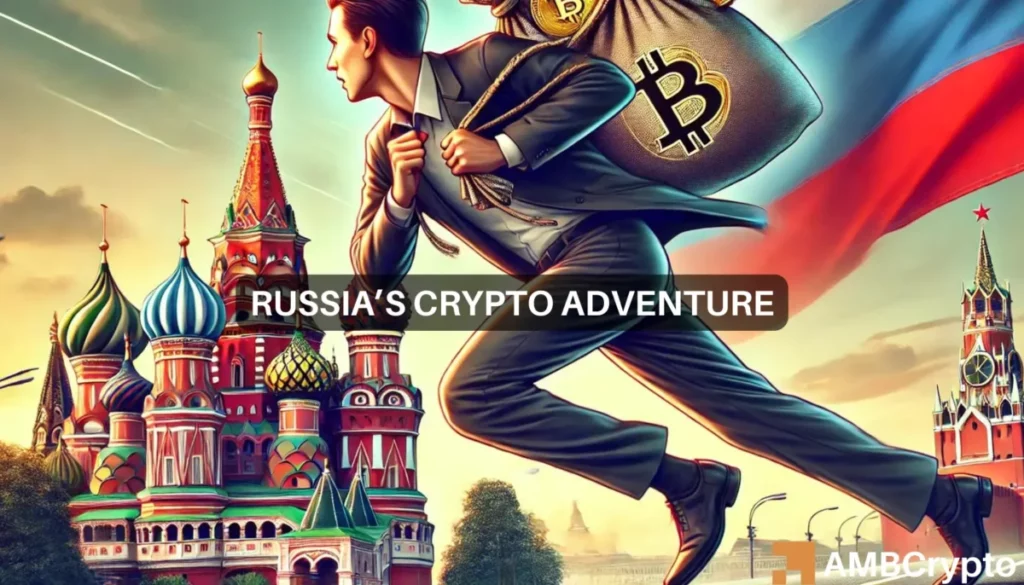
- Russia’s latest efforts to evade international sanctions involves crypto again
- Latest initiative and trials will use NPC system
Russia is set to begin trials for cryptocurrency exchanges and cross-border crypto transactions starting 1 September, 2024. This trial will utilize the National Payment Card system to facilitate the conversion of rubles to cryptocurrencies and vice versa, potentially aiding Russian exporters hampered by international sanctions.
This is a calculated moves by Russia to circumvent the crippling international sanctions imposed primarily due to its ongoing conflict with Ukraine. By enabling cross-border transactions in cryptocurrencies, Russia could potentially reduce its reliance on traditional financial systems, which are tightly controlled by the global community.
These trials will be especially helpful to Russian exporters, many of whom have found it difficult to get raw material and supplies after the latest round of sanction hit friendly foreign lenders too.
The involvement of the National Payment Card system is critical here. Especially since it underlines Russia’s intent to integrate cryptocurrency transactions into its broader financial infrastructure. This system, already crucial to Russia’s payment processing capabilities, could offer a streamlined pathway for converting rubles to cryptocurrencies.
“Specific investor class”
That’s now all though. Additionally, Russia’s central bank is considering allowing a specific group of investors to buy and sell cryptocurrencies. Here, it’s worth noting that at press time, the central bank was yet to define or characterize who these investors might be.
It was alluded to by Alexey Guznov, Bank of Russia’s State Secretary and Deputy Governor. He claimed,
“There is currently a discussion about allowing a limited group of particularly qualified investors to trade digital currencies, enabling them to buy and sell such assets. However, this is a topic for the next stage.”
The central bank’s contemplation of allowing a specific group of investors to trade cryptocurrencies suggests a cautious yet strategic approach to integrating digital assets into the economy. This move would likely involve institutional and accredited investors who could bring significant liquidity and expertise to the nascent Russian crypto market.
Russia’s so-called acceptance of this asset class has accelerated over the past few months. Especially as the full impact of international sanctions took its toll on Russian businesses. For example, the country’s parliament passed legislation allowing the legalization of crypto-mining back in July. By doing so, Russia is trying to harness the potential of this industry for economic gain.
This could also serve to attract foreign investments and collaborations in the mining sector, further strengthening Russia’s position in the global cryptocurrency market.
That being said, it’s too early to comment on what the likely impact of these crypto initiatives will be. Trials will start next month, yes, but its success will depend on a variety of factors.
Powered by WPeMatico









